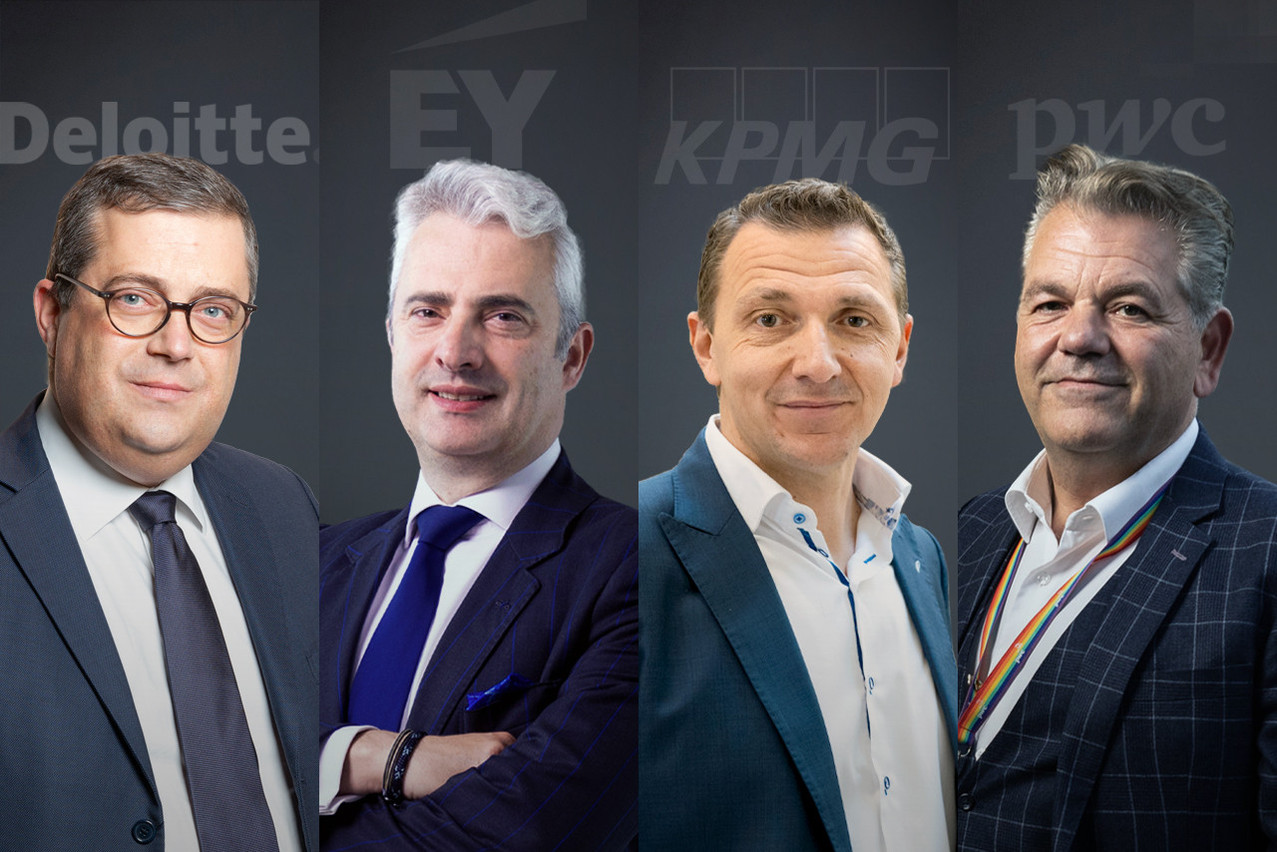In the growth chart, EY came out on top with an increase of 12.3%. The firm is followed by PwC with 11%, KPMG with 8% and Deloitte Luxembourg with 7%.
In absolute terms, it is PwC that takes the top step of the podium with a turnover of €543m, becoming at the same time the first Big 4 to exceed €500m in turnover on the market. Deloitte comes second with €405m, followed by EY with €325m and KPMG with €276m.
Read also
Year after year, the Big 4 model of combining audit and advisory services proves its resilience to all market conditions. Will the demerger of these activities open up new growth prospects, as is thought at EY? Or will it show that the multidisciplinary expertise model has its raison d’être as , the managing partner of PwC Luxembourg , and , the managing partner of KPMG, believe?
This will be an element to be scrutinised if the process of splitting EY were to become a reality. While no decision has yet been taken in Luxembourg, as stated at the time of the publication of the results, things seem to point to a separation.
Read also
Will a split lead to a domino effect? All hypotheses remain possible, unless the regulator gets involved. The Financial Reporting Council (FRC), the regulator of the audit profession in the UK, is now pushing for such a separation. And the action of Anglo-Saxon regulators on firms steeped in this culture is crucial.
Over 9,100 jobs
In the meantime, what are the reasons for the uninterrupted growth of the Big 4?
At EY, the reason is the overall growth of the Luxembourg market and the conquest of market share in its main businesses. EY’s strategy and transactions segment has grown by 44.2%, the consulting business by a “record 26%,” the audit business by 11.1% and the tax practice by 9%.
PwC cites four areas as driving the growth of its business: ESG, managed services in asset management, technology alliances and technology transformation. Financial services account for about three quarters of the firm's revenue, with almost half of that in the alternative investment funds area.
Deloitte reported growth of 7% in audit and assurance, 9% in consulting and advisory services and 3% in tax. The firm says its performance in consulting was driven by key drivers, including strong growth in digitalisation, financial advisory services, ESG services, disclosure solutions, and risk and regulatory services.
At KPMG, “significant growth in the private asset market” is credited with the firm’s strong growth in its business lines: +12% in audit for €136m in revenue, +5% in advisory (€75m in revenue) and +2% in tax (€64m in revenue)
At the end of their respective financial years, the Big 4 employed over 9,100 people. PwC had approximately 3,100 staff, Deloitte 2,500, KPMG 1,800 and EY 1,700. These figures were 2,839 (PwC), 2,300 (Deloitte), 1,800 (KPMG) and 1,700 (EY) previously.
This article was first published in French on . It was translated for Delano.
Updated, 20 February, to correct PwC’s revenue threshold
